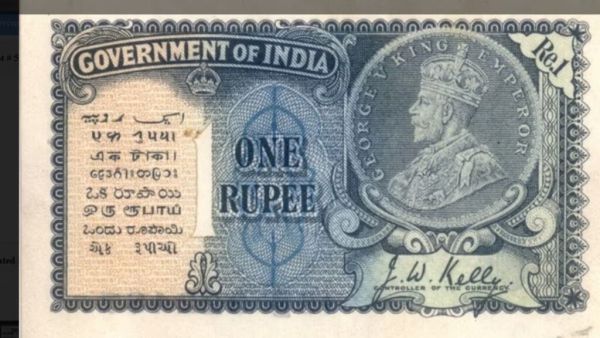On July 9, 2024, infuriated by decision to end their 18-month relationship, unleashed his outrage in a murderous attack.
And even after he Clifford still attempted to exert control over her - "rewriting" the narrative in what was a final, sickening insult to her memory. Experts say this last act of cruelty is far from "surprising" in a where victims continue to be "failed, re-traumatised, and disbelieved".
25-year-old Louise had made brave attempts to escape her evil ex, and although the break-up had taken a toll on her, she'd stayed strong, supported by loving friends and family members who'd long harboured concerns over the "controlling" ex-army serviceman.
In stark contrast to “caring, positive and happy" Louise, Clifford responded with cowardice and shocking violence. After tricking his way into the Hunt household in Bushey, Hertfordshire, under the guise of amicably returning Louise's belongings, Clifford, 26, fatally stabbed Louise's mother, Carol Hunt, 61, in the chest and stomach, mere moments after exchanging pleasantries over the doorstep.
READ MORE:

When dog groomer Louise, who had been working in the garden, re-entered the property, she was restrained and subjected to a horrifying three-hour ordeal, with Clifford carrying out a "violent, sexual act of spite" before killing her with the crossbow. When Louise's elder sister Hannah Hunt, 28, returned home, she too was murdered by Clifford after making heroic attempts to get help.
At his trial, and also admitted to the false imprisonment of Louise and the possession of a 10-inch butcher's knife and a MXT-405 Compound Crossbow.
However, he denied raping Louise before killing her, claiming DNA found on his former partner had been from consensual sex on June 23. This, Victim Focus director Jaimi Shrive, reflects "a wider culture in which male violence against women is too often excused or overlooked."
Criminal justice expert Jaimi told the : "The fact that Kyle Clifford and his defence team attempted to claim that his rape of Louise Hunt was consensual exposes how deeply embedded rape myths are in our culture and justice system. It is a stark reminder of how often victims are failed, re-traumatised, and disbelieved by the very institutions meant to protect them.
"Clifford meticulously planned the murders of Louise, Hannah, and Carol. To suggest that Louise’s rape before her murder was consensual is not only absurd but deeply shameful, yet is arguably not surprising. His claim follows a long-established pattern where perpetrators attempt to rewrite events to minimise their culpability, relying on the assumption that victims, especially those who cannot speak for themselves, will not be believed. The presumption of consent has been used repeatedly as a defence, reflecting a wider culture in which male violence against women is too often excused or overlooked."
She continued: "Raping Louise was one of Clifford’s final acts of cruelty, a deliberate assertion of power and control. By then claiming, in her death, that she consented, he sought to extend that same control beyond her life, further degrading her and compounding the suffering of those left behind. His actions, and the defence of them, should not be viewed in isolation but as part of a broader societal failure to take sexual violence seriously and hold perpetrators fully accountable."


Ultimately Clifford was this week found guilty of raping Louise, with jurors taking mere minutes to deliver a guilty verdict. Prosecutors are now expected to demand Clifford be handed a whole-life term when he is sentenced at Cambridge Crown Court, in which instance he will spend the rest of his days behind bars.
Summing up the prosecution case on March 6, Prosecutor Alison Morgan KC told the jury that Clifford's attack had been motivated by "anger and spite", stating: "If he wanted Louise, he would have her, rape her and murder her and members of her family.”
Remarking that Clifford's planning had involved "sexual violence as a means of acting out in spite in a final act before Louise's death", Mrs Morgan also noted that there had been an "overlap between violence and sexual thoughts".
This was demonstrated by Clifford searching for a crossbow before looking at pornography, in what Mrs Morgan described as the "marrying up of thoughts of extreme violence with sexual desire and fulfilment". She concluded: "It's how he views women and why sexualised violence is an important part of the attack. Relationships are part of the story but it really does come to a head through that search as someone who sees the through that viewpoint."

As per new data from Refuge, published ahead of their International Women's Day (IWD) campaign, the prevalence of domestic abuse is still underestimated by the majority of people - and the statistics make for harrowing reading. One in four women in England and Wales will experience domestic abuse at some point in her lifetime, while one woman is killed by an abusive partner or ex-partner every five days.
It has been found that young girls in the UK report a high incidence of sexual violence, with 41 per cent of girls between the ages of 14 to 17 in intimate relationships having experienced some form of sexual violence from their partner.
It also takes, on average, seven attempts before a woman is able to leave her abusive partner for good, and Louise herself championed the bravery of such women in her final tweet. The tweet was a repost of a message which read: "I admire women who leave. idgaf if you left after the 1st time or the 12th time I admire that s--t! idgaf if ppl was calling you dümb for 11 years but in the 12th year you decided you was done. it takes ALOT of strength to break a tie. it takes ALOT of self love to choose yo self."
If you would like to seek help, you can visit the Women's Aid information support page on their website. Survivors can also reach help through the Solace Advice Line by calling 08088025565 or by emailing them at advice@solacewomensaid.org. Alternatively, you can also contact A-Sisterhood via call on 07968369588 or by email at paula@a-sisterhood.org.uk.
If you've been the victim of sexual assault, you can access help and resources via or by calling the national telephone helpline on 0808 802 9999
Do you have a story to share? Email me at julia.banim@reachplc.com
READ MORE:









